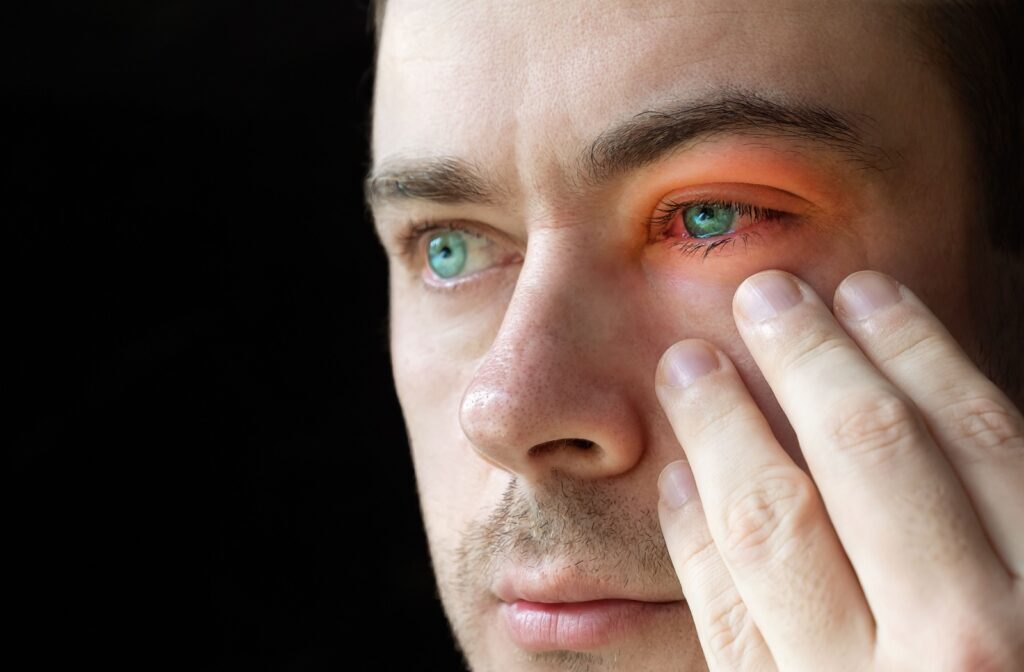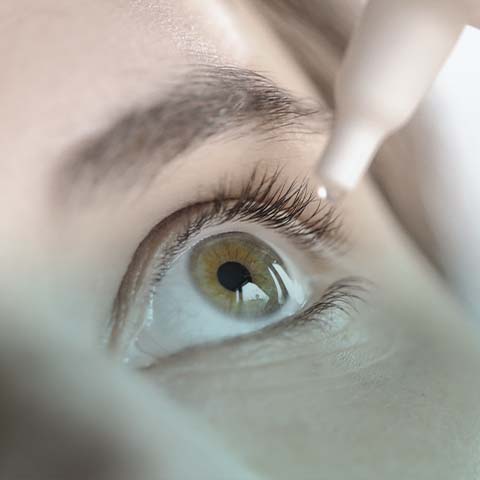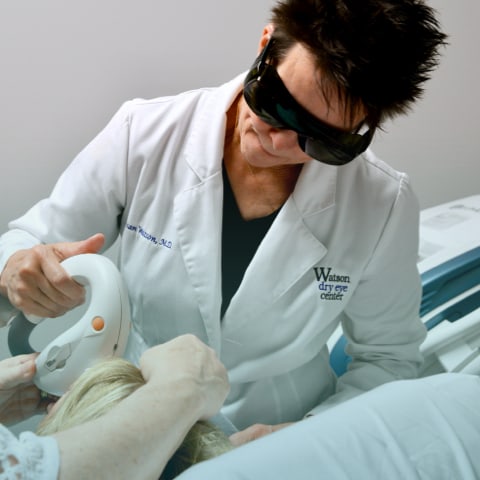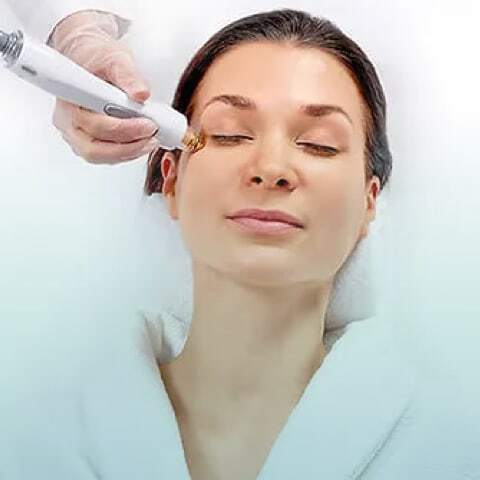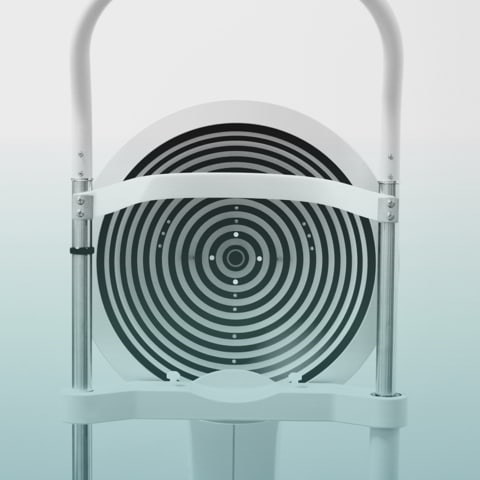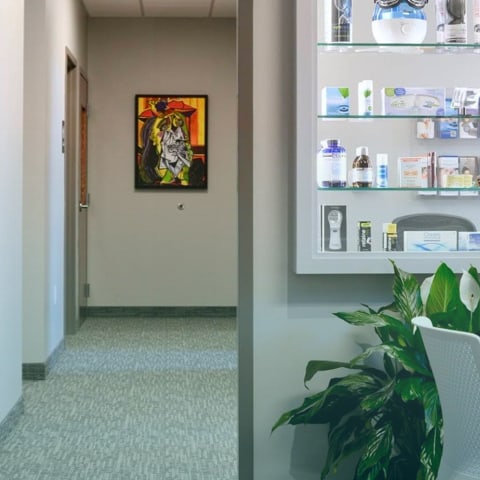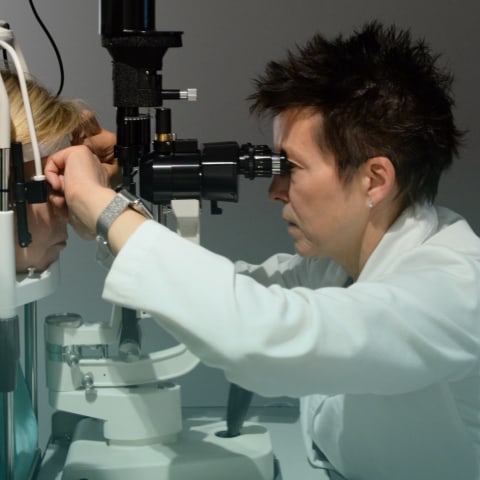Blepharitis is a common eye condition in which the eyelids become inflamed, causing discomfort and irritation. It can have a variety of causes, including infections, blocked meibomian glands, and sensitivity to eye makeup. If you’ve been diagnosed with blepharitis or know someone who has, you might be wondering whether it’s contagious and what steps you can take to manage it.
Blepharitis itself is not contagious; however, some of its causes—like bacterial infections—can spread from person to person. If you or someone you know is suffering from blepharitis, it’s important to take steps to prevent those underlying causes from spreading.
What Is Blepharitis?
Blepharitis is an inflammation of the eyelids that typically affects the edges where the eyelashes grow. Symptoms may include redness, swelling, itching, burning sensations, and crusty flakes near the eyelashes. Blepharitis can affect people of all ages but is more common in adults.
Common symptoms of blepharitis include:
- Redness and swelling along the edge of the eyelids.
- Itching and burning sensations.
- Crusty flakes or dandruff-like scales on the eyelashes.
- Feeling like something is in your eye.
These symptoms can vary in severity, and while they may cause discomfort, they rarely lead to serious eye damage if treated promptly. If you have the above symptoms, you should see your eye doctor.
Causes of Blepharitis
Blepharitis can result from various underlying causes. Some of the most common include:
- Bacterial infections, often involving Staphylococcus bacteria.
- Seborrheic dermatitis, which affects the oil glands on the scalp and face.
- Allergies, which can lead to inflammation and irritation.
- Dysfunctional meibomian glands, which are responsible for producing the oily layer of tears.
- Demodex mite infestation. These microscopic mites can block the eyelid hair follicles and glands, leading to inflammation and irritation.
What Are Demodex Mites?
If you have persistent blepharitis symptoms that don’t respond to traditional treatments, we may suspect a Demodex infestation. These mites are commonly found on the eyelashes, eyebrows, and other facial hair and in the skin’s oil glands or pores. They feed on dead skin cells, oils, and bacteria that accumulate on the skin.
While they typically live in balance with our bodies, certain factors can cause their population to grow out of control. This overgrowth can contribute to blepharitis.
To address Demodex mite-related blepharitis, your eye doctor may recommend a scrub, spray, or cleansing wipe that contains a low concentration of tea tree oil or hypochlorous-based acid. Tea tree oil is naturally antimicrobial, antifungal, antiviral, antiseptic, and acaricidal and effective at addressing Demodex. If these products aren’t enough, they may prescribe something stronger.
Tips for Preventing Blepharitis
Preventing the spread of bacteria and reducing the risk of blepharitis involves simple yet effective steps:
- Wash your hands regularly, especially before touching your face or eyes.
- Keep your eyelids clean by gently washing them with warm water and a mild cleanser.
- Avoid sharing personal items like towels, pillowcases, and makeup.
- Wash items that come into regular contact with your face, like towels, pillowcases and makeup brushes, to prevent bacteria from building up on them.
By following these preventive measures, you can significantly reduce the risk of developing blepharitis or spreading bacteria that may cause it.
Treatment Options for Blepharitis
Managing blepharitis effectively requires good hygiene practices, and sometimes medical treatments. Here are some common treatment options:
Eyelid Hygiene
Maintaining proper eyelid hygiene is essential for managing blepharitis. This includes:
- Using a warm compress to soften crusts and loosen debris.
- Gently cleaning the eyelids with a mild cleanser
- Regularly washing your face and removing makeup before bedtime.
Lifestyle Adjustments
Making certain lifestyle adjustments can also help manage blepharitis. These include:
- Avoiding rubbing your eyes excessively. Too much rubbing can cause further irritation, or even damage your eyes.
- Reducing screen time to prevent eye strain.
- Using a humidifier to maintain moisture in the air.
- Avoiding allergens or irritants that trigger symptoms.
Medications
In some cases, your doctor may prescribe medications to manage blepharitis, such as:
- Antibiotic ointments or drops to treat bacterial infections.
- Steroid eye drops to reduce inflammation.
- Artificial tears to relieve dryness and discomfort.
By combining these treatments and lifestyle changes, you can effectively manage blepharitis and reduce symptoms.
The Importance of Follow-Up Care
Depending on the cause of your blepharitis, it may be difficult to cure completely. Regular follow-up care is essential to keep symptoms in check. Your doctor may schedule follow-up appointments to monitor your condition and adjust your treatment plan as needed.
Monitoring Progress
During follow-up visits, your doctor will:
- Assess the effectiveness of your current treatment plan.
- Make any necessary adjustments to medications or hygiene routines.
- Provide additional tips for managing symptoms.
Consistent follow-up care ensures that you can control blepharitis effectively and minimize flareups.
Maintaining Good Eye Health
In addition to managing blepharitis, it’s important to prioritize overall eye health. This includes:
- Scheduling regular eye exams to detect and address any issues early.
- Protecting your eyes from UV rays by wearing sunglasses.
- Staying hydrated and maintaining a balanced diet rich in nutrients that support eye health.
By incorporating these habits into your routine, you can promote long-term eye health and reduce the risk of developing other eye conditions.
We’ll Help You Wipe Blepharitis Away
With the right knowledge and approach, blepharitis can be managed effectively. By understanding the causes, symptoms, and treatment options, you can take proactive steps to maintain good eye health and reduce the impact of blepharitis on your daily life.
Watson Dry Eye Center cares about your eye health, and we’re here to help you manage your blepharitis every step of the way. For more information, book an appointment with our ophthalmologist, Dr. Watson, today.


